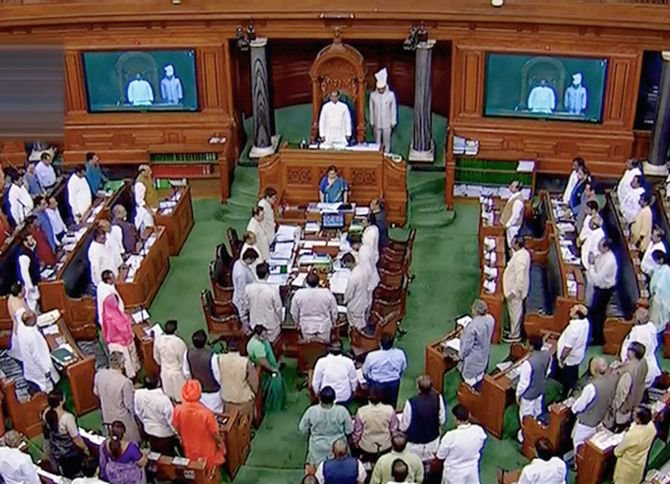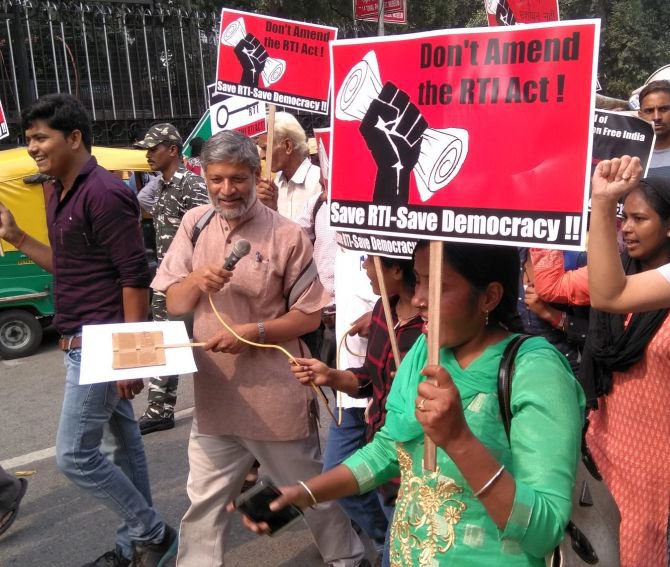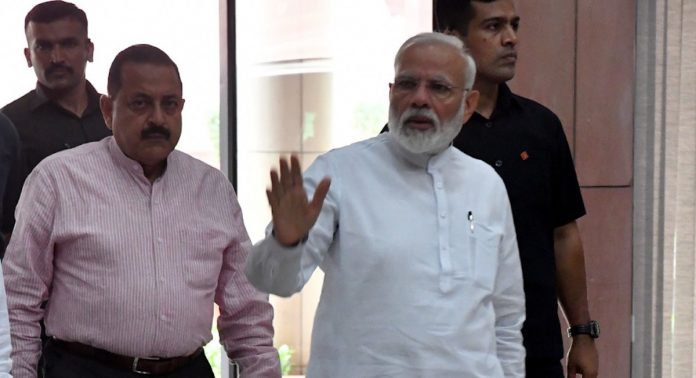On Monday, the Lok Sabha passed the Right to Information (Amendment) Bill in the face of massive opposition. It was passed with 218 members voting in its favour and 79 against it after a reply by Minister of state for personnel, public grievances and pensions, Jitendra Singh.
1. The amended bill has done away with the fixed tenure of five years for the Chief Information Commissioner (CIC) and the Information Commissioners (IC). They will now serve for a tenure determined by Centre.
The Centre will also have the power to decide the salary and the perks that the CIC and the ICs receive.

2. The power of appointment for the Chief Information Commissioners (SCIC) and State Information Commissioners (SIC) will lie solely with the Centre.
Currently, the SCICs and SICs are chosen by a three member panel comprising the state CM, the state’s leader of opposition or leader of the largest opposition party in the state assembly and a state cabinet minister nominated the chief minister. The amendment would nullify the independence of the state legislatures.

3. Since the Centre would decide the tenure, it follows that they would also be responsible for dismissals.
In the original bill, the CIC and IC could only be removed by the President – and the state Governor in case of SCIC and SIC – after an enquiry by the Supreme Court finds reason for their dismissal from office. However, if the Centre would be in charge of tenure, they would also be responsible for removals.

The NDA, along with its friendly parties, has the numbers to push the bill through after its passed the Lok Sabha. However, such a contentious bill that puts so much power at the hands of the centre has obviously been met with massive opposition.
The Centre is hell bent on subverting the RTI act.
Other opposition parties have also termed it the ‘RTI Elimination Bill’.
Several others also voiced their dissent.
RTI Amendment Bill provides NO rationale for doing away with statutorily defined tenure (5 years) of Chief & Information Commissioners and to allow for it to be prescribed by the Central government. Will the Minister explain why this Amendment is being made? #DontAmendRTI
— Anjali Bhardwaj (@AnjaliB_) July 21, 2019
Soon we will know everything about the moon. But nothing about government or party funding practices.#Chandryaan2 #RTIAmendment
— SAGAR BANSL (@sagarbansal86) July 22, 2019
RTI Amendment Bill listed for discussion and passage on Monday. It is imperative that the Bill be sent to the Standing Committee for deliberation. No public consultation has taken place on the Bill which will seriously dilute people’s fundamental right to information. #SaveRTI pic.twitter.com/nlxwfe6Pzy
— Anjali Bhardwaj (@AnjaliB_) July 20, 2019
No public debate or discussion allowed by government on the RTI Amendment Bill. The amendments must now be referred to a Standing Committee. #DontAmendRTI @narendramodi @PMOIndia#DontAmendRTI #SaveRTI
— Rishabh Sharma (@Rishabh75229895) July 21, 2019
“WE THE PEOPLE OF INDIA” pic.twitter.com/ccSJoxZUsm
Further updates are now awaited.

















